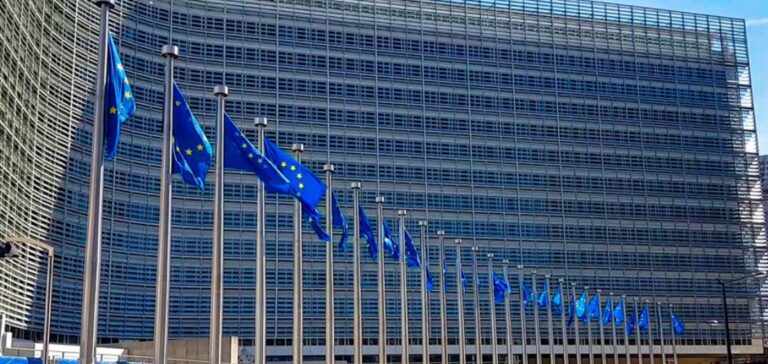The European Commission is ready to “examine” a cap on gas prices on the European market to cope with rising energy bills caused by the war in Ukraine, said Wednesday its president, Ursula von der Leyen.
“Such a cap on gas prices must be properly designed to ensure security of supply,” the German official added, however, before the European Parliament in Strasbourg.
The European Commission had already mentioned a price cap, but only for Russian gas, fearing, like Germany, that a price limit on all gas imports would push producers to prefer other destinations.
But a majority of member states – fifteen, including France, Belgium, Italy, Spain and Poland – are calling for a general cap on wholesale gas prices.
Ms. von der Leyen said that the Commission was “ready to discuss a cap on the price of gas used to produce electricity”, which would be “a first step towards a structural reform of the European electricity market”.
Such a “temporary cap”, which should bring down electricity prices, “should be designed in such a way as not to increase consumption” of energy, the head of the EU executive said in a letter sent Wednesday to leaders ahead of an EU summit Friday in
Prague.
“But we must also look at gas prices (…) which concern industry, heating”, also estimated Mrs. von der Leyen.
In her letter, Ursula von der Leyen also proposes “intensifying negotiations” with “reliable” supplier countries such as Norway and the United States to lower the price of gas imports, as well as joint purchases of gas by EU countries.
In a text voted on Wednesday, MEPs called on the Commission to impose “a tariff cap on gas imports” and “an immediate and complete embargo on Russian energy imports”.
Having become the main supplier of gas to Europe since the reduction of Russian deliveries in the wake of the war in Ukraine, Norway – which is not a member of the EU – repeated on Wednesday its hostility to a price cap.
“A price cap on the wholesale gas market will not solve Europe’s difficulty, i.e. a lack of gas, but will rather make the situation worse since such a solution can be expected to contribute to increased consumption and lower deliveries,” reacted Norwegian Energy Minister Terje Aasland.
“Nobody can use more gas and energy than there is,” he argued in an email to AFP in Oslo.
Germany, the country most dependent on Russian gas, has also so far rejected the idea.
But Berlin has been under pressure since the announcement last week of a 200 billion euro national plan to protect its economy from rising energy prices.
Accusing Germany of going it alone, some countries fear that German companies will have an advantage over their competitors in countries that cannot afford to finance such a “shield”.
“It is essential that we maintain a level playing field within the European Union in our single market,” said von der Leyen, without mentioning Germany. “Without a European solution, we risk fragmentation,” she warned.






















